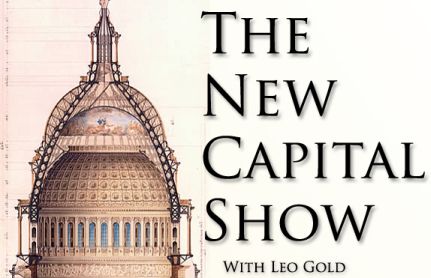Wasting Time
In the closing act of Shakespeare’s Richard II, the pathetic, dethroned monarch sits in a prison cell, musing on his incompetence as king of England. Guilty of murder, theft, misuse of money and power, he kept his yes-men close by, basked in their flattery, and took their direction; he ruled as a slum-landlord, leaving the country unattended and vulnerable as he waged war. He garnered no favor from his people, his vision for the country grounded in out-dated political theory, and he refused logical, avant-garde advice from those more knowledgeable. He suffered from hubris, confident that his title alone granted him inherent authority, respect, and moral correctness; he believed that God protected him. But more than anything, he wasted time – to act, to improve, to change.
Several listeners urged me to watch the recent documentary Who Killed the Electric Car?, and the other night, I did. The elements of Richard II are there in the movie: an oil industry that can’t allow an all- electric vehicle for greed of a sustained profit; an automobile industry with no clairvoyance beyond a six month profit margin; and a corrupt government that grants a $4000 incentive for a hybrid car but a preposterous $100,000 tax break for SUV’s because they are considered to be farm equipment – inciting the people to behavior that is the opposite of what should be. Like so much else these days, when it comes to electric and hybrid automobiles, our leaders have committed many of the same errors as Richard.
And though our leaders have proven to be adept at avoiding reality, or at creating their own, even they have not been able to completely avoid recent events, including spikes in gasoline prices, a growing political demand for less dependence on foreign oil, and the latest dismal global climate reports. And so the electric car may not disappear so quietly, and is actually in some small fashion flourishing right now as a sidekick in newer hybrid vehicles, especially those being made and marketed successfully by Japanese car companies while US automakers hemorrhage cash and lay off workers.
The hybrid vehicle represents a compromise, both actually and symbolically, a car with two power sources, a standard combustion engine to please the powers that be, and an electric sidekick to please the change agents. Whether détente within the hybrid hood lasts remains to be seen. Significant improvements in batteries in the coming years could nudge aside the combustion engine, or at least reduce its presence. A struggle for the primacy of the future automobile engine—the internal combustion engine versus the electric engine, is therefore raging inside the hood of hybrid cars, even though it may look like they are partners right now. If the electric wins, consumers will plug in their cars at night, fueling them with coal and nuclear power plants, and perhaps also solar and wind and driving emissions free. If the internal combustion engine wins, then we keep the polluted status quo.
Efforts to engineer viable electric cars have come and gone since the time of Thomas Edison and Henry Ford. As the years progressed an electric vehicle appeared here and there, but mostly as a university project or to quell the political dogma at the time; no serious industry effort was made. It was only with the OPEC oil crises of the 1970’s that this country considered improving fuel economy and lessoning dependence on foreign oil.
But then oil prices declined as the Saudis dropped the price through the floor in order to destroy any efforts to create alternatives to their main export. Since then our government has done little to improve fuel economy. The “free market” mantra that Ronald Reagan initiated has been allowed to reign in the oil markets, even though there is no such thing as a free oil market as 75% of the world’s supplies are in one place and price is dictated by that region’s production schedules. Our government squanders valuable time and sends the army across the globe to ensure protection and garner trafficking routes for oil companies. As a result, oil is cheap, and low prices generate happy consumers, and happy consumers create no incentives for automakers to improve vehicle efficiency. Just the opposite – automakers focus on creating more luxurious vehicles in order to compete domestically. When oil is cheap, vehicle weight—and the amount of gasoline burned by big cars, trucks, and SUVs—is no longer an issue.
What should we expect? We should expect our government to create a fair environment, where true costs are accounted for, subsidies are eliminated, and true capitalists and engineers are allowed to innovate. We should expect our car companies to truly divorce themselves from our oil companies, and produce cars that run on a variety of fuels so that our society may choose models that are aligned with solutions to the problems that we face, rather than models that are contributors to our problems. We should expect that improvements in technology will be not just pursued, but also implemented and adopted within reasonable time, and that if markets lack the regulation necessary for improvements to emerge and protect the commons, that the government will enforce such regulations. And we should expect that we ourselves play the primary role of demanding change from these other players. If we are silent they will not change.
Perhaps in trying to fulfill these expectations on the littered stage that is the American auto market, it may be that we avoid the fate of Richard II, who in the end, brought low, could only mutter, “I wasted time, and now doth Time waste me.”
I’m Leo Gold, this is the New Capital Show, back in a moment.



Reader Comments